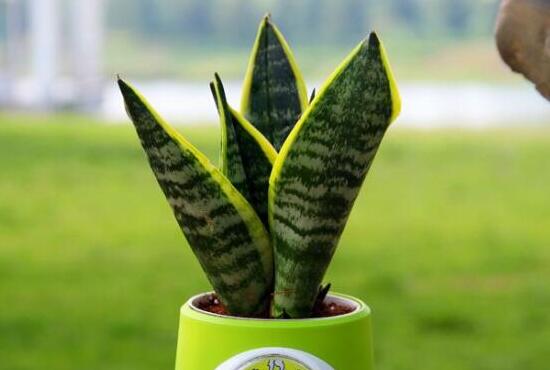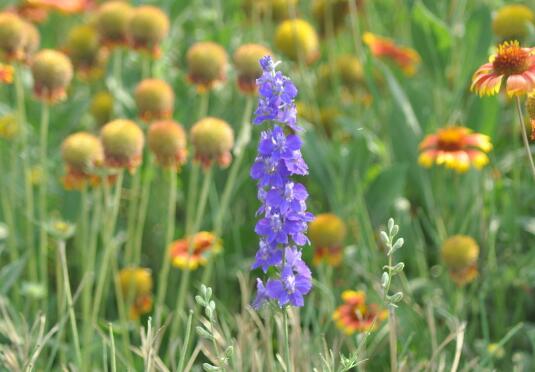What if Phnom Penh Tiger Pilan has no Phnom Penh? an Analysis of the reasons for the disappearance of Phnom Penh Tiger Pilan Phnom Penh
As a kind of tequila family, Phnom Penh tiger skin orchid friends should be no stranger, it is a variety of tiger skin orchid, its characteristic is that the leaf edge with gold edge, looks very beautiful. So when Phnom Penh Tiger Pilan Phnom Penh disappears, flower friends must be in a hurry! So, what if Phnom Penh Tiger Pilan has no Phnom Penh? Today, the editor will solve this problem for you.
First, Phnom Penh Tiger Pilan has no Phnom Penh, find the reason.

Phnom Penh tiger skin orchid has many functions, not only beautiful, anti-radiation, but also medicinal treatment, but the flower friends are undoubtedly most moved by its beautiful leaves with Phnom Penh. However, if Phnom Penh Tiger Pilan Phnom Penh disappears, flower friends must be very troubled! As for Phnom Penh Tiger Pilan does not have Phnom Penh how to do, first of all, naturally to find the reason, and then for the solution. In this regard, the editor summed up two reasons, let's move on.
II. An analysis of the reasons for the disappearance of Phnom Penh Tiger Pilan Phnom Penh.
1. Lack of light
Phnom Penh Tiger Pilan is a variety, and its Phnom Penh makes it worth twice as much. However, when breeding, be sure to give it sufficient light, because the more light (except strong light), the more colorful the leaves of Phnom Penh Tiger Pilan. On the contrary, if the light is not enough, it will affect the growth of the plant, and in serious cases, it will cause Phnom Penh Tiger Pilan Phnom Penh to disappear.
Solution: when raising Phnom Penh tiger skin orchid indoors, it should be placed in a place with good light to keep the light for a long time. In spring and autumn, keep the light for 4-5 hours; in summer, the light is strong and need proper shade, especially the noon sun, which must be avoided; in winter, the light should be as much as possible, because the more the sun, the more obvious the gold edge.
2. Wrong cutting method.
In the breeding method of Phnom Penh Tiger Pilan, a leaf insertion method was introduced, which said: if the leaves are inserted along the soil, the Phnom Penh Pilan Phnom Penh will disappear; if it is inserted backwards, Phnom Penh will be preserved. Knowing why Phnom Penh Tiger Pilan Phnom Penh disappears, let's take a look at the solution:
① cuttings selection: if you want to insert leaves, you naturally have to choose leaves. First of all, the flower friends remove the Phnom Penh tiger skin orchid from the flowerpot, then clean up the soil, and then cut off the outer leaves. Choose 2-3 leaves with a length of about 15 cm as cuttings.
② cuttings treatment: after the cuttings are selected, the corresponding treatment should be done. Because the leaves of Phnom Penh tiger skin orchid are too thick, in order to prevent the plant from being infected by bacteria, flower friends apply plant ash or furnace ash to the incisions of the leaves.
③ leaf insertion begins: wipe the cuttings clean, then cut the upper part flat, then invert the leaves and insert them down into the newly prepared flowerpot soil with a leaf sheath. Insert it at a depth of 3-5, then control the room temperature between 18 and 22 ℃. After proper watering, place the plant in a cool environment. About half a year, Phnom Penh Tiger Pilan will sprout out leaves, and the leaves are left with Phnom Penh.
Phnom Penh Tiger tail Orchid what are the breeding methods of Phnom Penh Tiger skin Orchid?
Phnom Penh Tiger Pilan is a kind of foliage plant which can purify indoor environment. The stomata on the fleshy stems of Phnom Penh Tiger Pilan close during the day and open at night to release negative ions and alleviate the adverse effects of the lack of negative ions in the home environment where electronic devices gather. How to raise Pilan Tiger in Phnom Penh?
Phnom Penh tiger skin orchid worm how to do, Phnom Penh tiger skin orchid disease and pest control / drug spraying
Phnom Penh Tiger Pilan, heard the name to know that it is a kind of Tiger Pilan, its characteristic is that the edge of the leaf is golden yellow, looks very beautiful. However, the beauty of Phnom Penh Tiger Pilan needs everyone to take good care of. Once it gets sick, it will destroy all this. What about Phnom Penh Tiger Pilan? The following is the pest control of Tiger Pilan in Phnom Penh. Let's take a look at it with the editor.
First, Phnom Penh tiger skin orchid long worm, spray with medicine
As a common foliage plant, the breeding method of Phnom Penh tiger skin orchid is not difficult, but because there are many newcomers, many of them do not maintain in accordance with the requirements, resulting in the symptoms of long insect disease, seriously affecting the ornamental of the plant. As for Phnom Penh tiger skin orchid worms how to do? In fact, it is very simple, find specific pests, and then aim at spraying.
II. Disease and insect pest control of Phnom Penh tiger skin orchid
1. Scale insects
In the case of proper water and fertilizer, Phnom Penh tiger skin orchid grows very luxuriantly, which is good, but if the room is not ventilated, for a long time, the plant will be vulnerable to shell insects. Symptoms of damage, plant leaves lose luster, golden change is also very dim, in severe cases, the whole plant will die.
Control methods: first, move the plant to a ventilated place, and cut off the diseased leaves to reduce the source of insects; when there are many shell insects, it is necessary to spray 1000 times of omethoate or 1500 times of malathion for control.
2. Mites (red spiders)
In addition to shell insects, mites are also one of the diseases and insect pests of Phnom Penh, among which red spiders are the most common. Symptoms: yellow and white spots appeared in Phnom Penh tiger skin orchid leaves, then gradually turned red and extended to the whole leaf, even causing the leaves to curl, withered and yellow shedding.
Prevention and control methods: after the red spider is found, it should be sprayed immediately. The medicament can choose 1500-2000 times of trichloropropanol EC or 1.8% acaridin EC 6000 times, spray once every 7 days, 2-3 times, the effect is good.
3. Slugs
After excluding shell insects and red spiders, slugs are generally the only insects that invade Phnom Penh tiger skin orchid. The insect is a kind of pest with complex feeding habits and large food intake, which will eat the leaves of Phnom Penh into holes and seriously affect the ornamental ability of the plant.
Control method: after the slug is found, the young cabbage leaves can be used for artificial trapping, or 6% Mida molluscicidal granule 0.5kg~0.6kg, mixed with dry fine soil, can be evenly sprinkled around the plant, and soon the slug will run away.
4. Leaf spot
In addition to the long worm, in the case of improper maintenance, Phnom Penh tiger Pilan will also get sick, of which the most common is leaf spot disease. Disease symptoms: in the early stage, the leaves appear nearly round or oblong spots; in the later stage, the disease spots fall off and perforate, and the disease spots near the ground are easy to rot, resulting in stem base rot or whole plant inversion.
Prevention and control methods: in peacetime maintenance, watering should be reduced to reduce soil moisture; when the above diseases are found, Bordeaux solution, 53.8% can kill 2000 dry suspension 1000 times liquid to spray, spray 2-3 times in a row, spray once every 5-7 days, one month effect can restore health.
5. Anthrax
One of the common diseases of Phnom Penh tiger skin orchid mainly occurs under the conditions of high humidity and muggy environment, stagnant water in flowerpots, poor ventilation and so on. Symptoms: Phnom Penh tiger skin orchid leaves appear yellow-brown and sunken spots, and then expand called dark brown round spots, the leaf tip withered, and then the whole plant died.
Prevention and treatment: cut off the diseased leaves and burn them centrally to reduce the source of the disease; in severe cases, spray 1000 times of carbendazim or 1000 times of methyl topiramate for antiseptic, which can be effective after 2-3 times.
Generally speaking, Phnom Penh tiger skin orchid is not difficult to raise, just put it in a ventilated place, and be careful not to pour too much water, it is not easy to grow insects and get sick. Of course, do not be afraid to find diseases and insect pests in Phnom Penh. You can solve them according to the above prevention and control methods. On the prevention and control of diseases and insect pests in Phnom Penh Tiger Pilan, the editor has introduced this, hoping to bring help to everyone.
- Prev

How to spend the winter in Phnom Penh, the key is to maintain / control the temperature in winter.
Raising plants indoors has now become a popular trend, among which Phnom Penh Tiger Pilan is the choice of many people. However, in winter, many flower friends raise Phnom Penh Tiger Pilan will have all kinds of problems, do not pay attention to, or even die! Therefore, the maintenance of Phnom Penh Tiger Pilan in winter must be careful.
- Next

How to raise sage, sage cultivation methods and precautions/plenty of sunshine
Sage is a flower plant native to southern Europe and the Mediterranean coast, and later introduced to China. Nowadays, there are many people who cultivate it in China, but it is not easy to raise it well. There are many places to pay attention to. How to raise sage
Related
- Fuxing push coffee new agricultural production and marketing class: lack of small-scale processing plants
- Jujube rice field leisure farm deep ploughing Yilan for five years to create a space for organic food and play
- Nongyu Farm-A trial of organic papaya for brave women with advanced technology
- Four points for attention in the prevention and control of diseases and insect pests of edible fungi
- How to add nutrient solution to Edible Fungi
- Is there any good way to control edible fungus mites?
- Open Inoculation Technology of Edible Fungi
- Is there any clever way to use fertilizer for edible fungus in winter?
- What agents are used to kill the pathogens of edible fungi in the mushroom shed?
- Rapid drying of Edible Fungi

